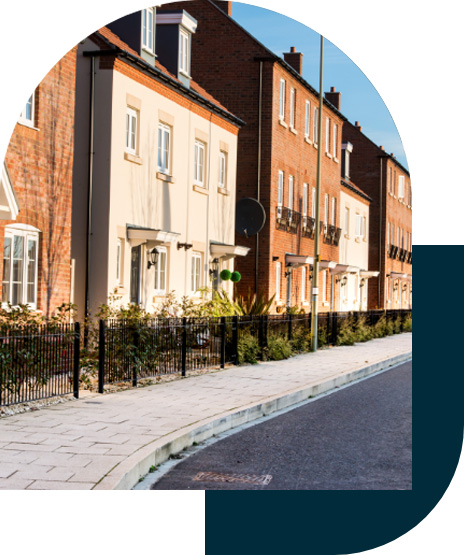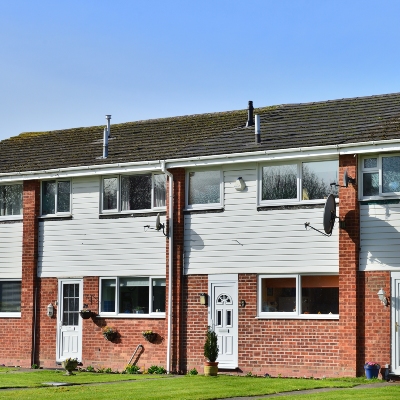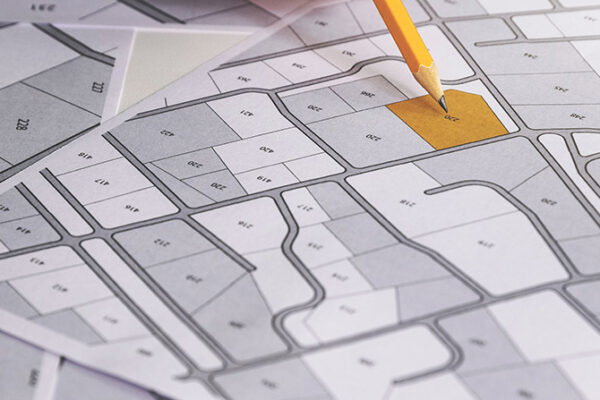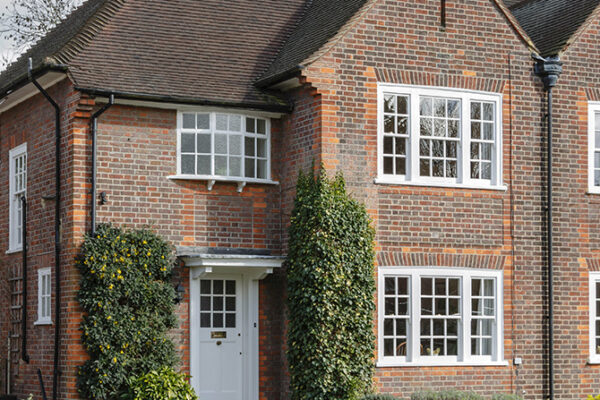Our Conveyancers can help with the sale of both freehold and leasehold properties

HSR Law deal with the sale of
Freehold and Leasehold properties.
The conveyancing process for selling your property is as follows:
1. Instruct HSR Law
Once you have had your valuation from your estate agents and the property is on the market, once an offer has been made and accepted on your property you will need to instruct a Solicitor/Conveyancer to act on your behalf to complete the legal work.
2. Your conveyancer will complete an ID verification and check your property details
ID check, we would need to see your primary ID, such as a passport or driving licence as well as proof of address in the form of a bank statement or utility bill dated within the last 3 months. If you do not live at the property to be sold, we will also need ID linking you to this address.
If you have a mortgage (or other loan) secured on the house you are selling, we will request a redemption figure from your lender to find out how much is outstanding, this figure will then be paid out of your sale proceeds on completion.
If the property you are selling is a leasehold, we will need to contact your landlord / management company to find out more details and whether there are any payments outstanding such as service charges or ground rent.
3. Request Title of Deeds
We will obtain a copy of the title from the Land Registry and send a draft contract to the buyer’s Solicitors/Conveyancer known as the contract pack.
4. Completing questionnaires for your buyers
You will be asked to complete a Property Information form which has specific details about the property, its boundaries, any alterations to the property etc. and a Fittings and Contents form to say what you will be taking and leaving behind.
These will then all be sent to the buyer’s conveyancers, along with any additional documents you have provided such as FENSA certificates, building regulation certificate and any warranties/guarantees you have.
5. Exchange of contracts
Before exchange of contracts, you will be sent a contract to read , sign , and return to HSR Law . You will also have to sign the transfer document (TR1), which is a legal document that both seller and buyer need to sign or transfer the ownership of the property. This must be signed in the presence of an independent witness over the age of 18 years and not be a family member. Once the contracts have been exchanged, you will be legally bound to complete on the date agreed in the contract.
6. Completion
On the day of completion, the buyer’s conveyancers will transfer the money to purchase your property by telegraphic transfer and we will confirm completion to you and confirm that the keys can be released to the estate agents.
7. Final step – post completion
Once you have completed on your house sale, HSR Law will then send the signed transfer to the buyer’s solicitors so that they can register the transfer of ownership with the Land Registry.
HSR Law will then transfer our fees set out in the client care and completion statement, pay estate agent and redeem any mortgages costs before sending (if any) the balance to you.

We are CQS Accredited
The Conveyancing Quality Scheme (CQS) accreditation demonstrates that HSR Law Solicitors can provide residential conveyancing advice of the level expected by clients, lenders and the wider residential conveyancing community.
Being CQS accredited means we have the expertise to deliver quality residential conveyancing advice and use standardised processes to manage and reduce risks.
Your Selling Team
Property FAQs
Exchange means that your contract to purchase is now legally binding. If you withdraw from the sale, you will lose the deposit you paid. On exchange you also set the date for completion.
No, your Lenders grant the mortgage but they ask us to confirm that the valuation has no errors and that there are no issues with the property that they should be informed of. It is our job to ensure that both you and your Lender are happy to proceed.
Someone over 18 has to witness your documents and no one that is related to you
The ISA can only be used as part of completion funds to pay the balance of the property. It cannot be used as the deposit. Your buyer’s solicitor may agree to accept a lower deposit on exchange. Your solicitors can charge £50 plus VAT for applying for this for you.
If you are a cash buyer this is your choice, but HSR Law would always advise that you do obtain searches . If you are purchasing with the aid of a mortgage, this is mandatory. The main searches are as follows:
Local Authority
A local authority search will provide you with detailed information about your property and the surrounding areas including planning entries and road adoptions. This will give you peace of mind before going ahead with the purchase of your new home and ensure you avoid any surprises in the future
Water and Drainage
A water and drainage search will confirm the proximity of the property to public sewers, whether the property has a sewer running within the boundaries of the property and if the property is connected to mains services.
Environmental search
An environmental search would confirm whether the previous land use of the property creates a potential environmental risk. This search will highlight issues which would include:
Landslides
Subsidence
Contaminated land such as historic landfills and waste sites
The risk of flooding from nearby rivers or seas
Mining search
A mining search is required if the property is situated in an area of previous or current mining history and is at risk of being built on unstable ground.
If you hold the property as joint tenants, both of you will own the whole of the property. You will not each have a quantified share in the property and will not be able to leave a share of the property in your will. If you sell the property, or if you separate, it will be presumed that you both own the property equally.
If you hold the property as tenants in common, each of you will own a specified share in the property. For example, one owner could own 70% of the property while the other holds 30%. The percentage shares are commonly used to reflect the amount of money contributed.
If you buy a property freehold, it means you completely own the property and the land it sits on
When you buy a property that is leasehold, you own it for a set length of time, which is the term of the lease.
Click here to read our Freehold vs Leasehold factsheet.
Our Latest Residential Property News
- Am I Eligible for the Right to Buy Scheme? Key Rules ExplainedThe Right to Buy scheme helps council tenants purchase their homes at a discount, but not everyone qualifies. In this guide Amy Fields, Partner and Head of Residential Conveyancing explains who can apply, how discounts are calculated, and how our team can support you through the process from start to completion.
- A quick guide to remortgagingRemortgaging is the process of switching your existing mortgage to a new deal, either with your current lender or a different one.
- Traditional v Modern AuctionsExploring and comparing the difference between traditional and modern method auctions when purchasing property.
- Stamp Duty Changes from 1st April 2025Significant changes to Stamp Duty Land Tax (SDLT) are being implemented from 1st April 2025.
- Freehold vs Leasehold Property: What’s the difference and which is right for you?Understanding the difference between freehold and leasehold is crucial when buying or selling property in England and Wales. This guide explains what each type of ownership means, how they affect your rights and responsibilities, and what to consider before making a decision.















